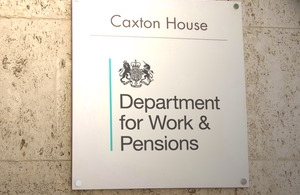An inquiry has begun into how much of a wealth divide exists between the older and younger generations and if Government policies are to blame.
The Work and Pensions Committee has started work on the "intergenerational fairness" report.
MPs will ask whether the current generation of people in the retirement age bracket will, over the course of their lifetimes, have accumulated much more housing and financial wealth and welfare and pension entitlements than more recent generations can hope to receive.
The group born in the middle of the baby boom (between 1956 and 1961) have been forecast to receive from the welfare state 118 per cent of what they contribute, the committee said, while recent research shows that younger people were on course to have less wealth at each point in their lives than earlier generations had acquired by the same age.
The committee’s inquiry will investigate the extent to which this disparity is a consequence of government policies, such as the pensions triple lock, which protects pensioners' incomes, and/or broader economic and demographic trends.
The committee said it would consider steps, which could be taken to address any intergenerational unfairness.
Frank Field MP, chair of the committee, said: "Voters have two priorities for welfare reform: is it fair and is it affordable? Politicians of successive governments have ducked both of these fundamental questions when it comes to the different levels of income afforded to those above and others below retirement age.
“Is it fair and affordable to divert a large and growing sum of public expenditure toward pensioners – regardless of their circumstances – while mainly poor families with children face year-on-year restrictions on their income?
“Can the triple lock pension increase pledge be sustainable? Or are these policies necessary to guard against pensioner poverty? The committee hopes to learn from voters of all ages what they believe to be both fair and affordable, so we can propose ways of restoring confidence across all generations in the welfare state."
Carlton Hood, customer director at Old Mutual Wealth: “This is a vital issue to address. In 2035 the first generation of consumers will retire that are less well off than their predecessors (says TSIP ‘Saving our Financial Future’ report).
“In recent decades the UK’s savings ratio has dramatically declined. Now fewer than half of people at retirement have access to a defined benefit pension that will give them a secure income for life.
“Younger generations place a different emphasis on wealth – many start their working life with substantial debt from university with access to cheap and easy borrowing.
“The challenge for government and long terms savings providers is to demonstrate the need to be financially prepared for the future, in a way which reflects this new reality and speaks to these shifting priorities.”

